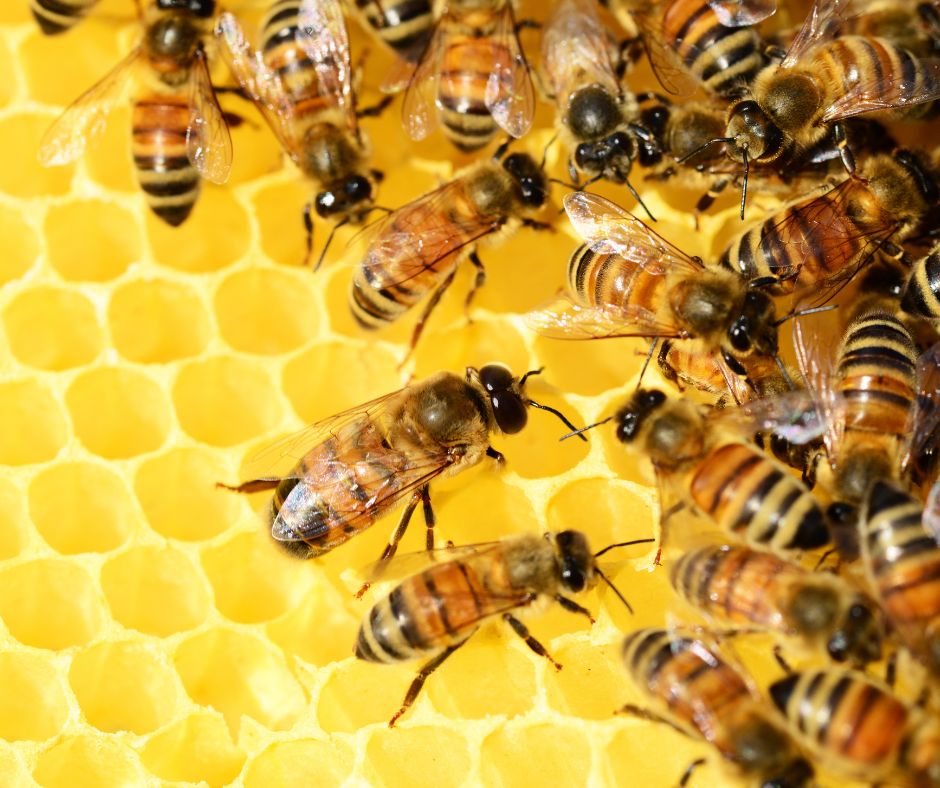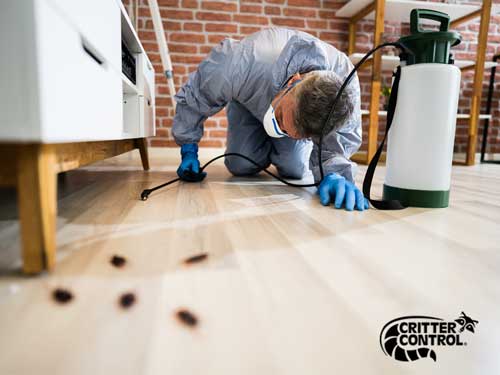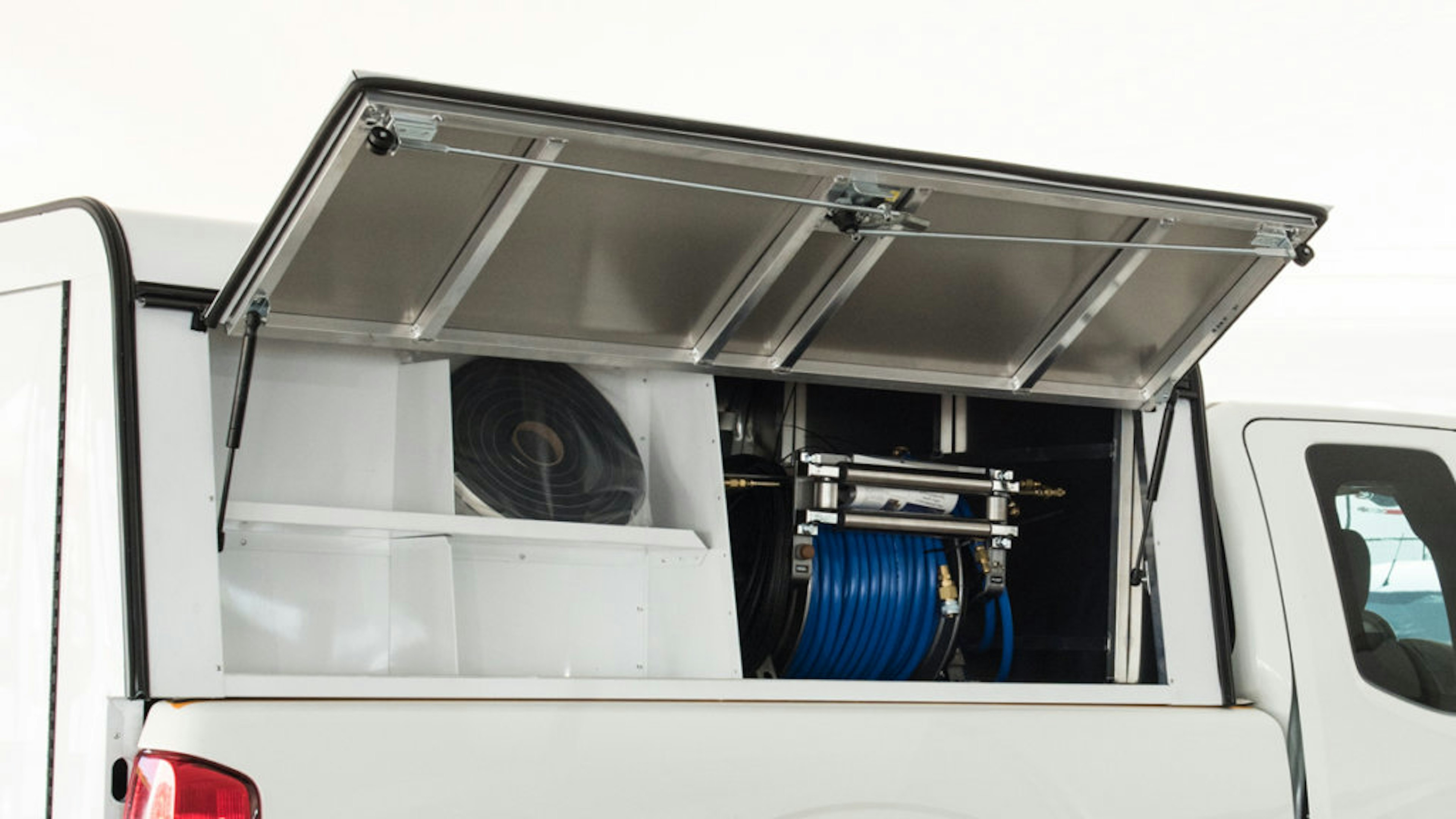Learn About the most recent Advances in Parasite Control and How to Implement Reliable Therapy Solutions
In the last few years, the area of insect control has witnessed considerable developments, driven by the requirement for lasting and reliable treatment options. Cutting-edge approaches such as Integrated Bug Management (IPM) combine environment-friendly exercise with sophisticated innovation, improving both efficacy and environmental duty. The combination of clever innovations and DIY techniques has actually encouraged individuals to tackle bug problems more effectively. As we check out these advancements, it becomes crucial to recognize exactly how ideal to carry out these strategies in numerous settings to attain ideal results. The implications for bug monitoring techniques could be transformative.
Eco-Friendly Bug Control Options
Over the last few years, the need for environment-friendly bug control alternatives has risen as companies and house owners alike look for sustainable choices to traditional chemical treatments. This change is driven by growing environmental awareness and a wish to lessen the wellness threats connected with synthetic pesticides.

Green parasite control techniques include a range of techniques that focus on using all-natural materials and techniques. Integrated Insect Monitoring (IPM) is one such strategy, integrating organic, cultural, and mechanical methods to take care of parasite populations while minimizing reliance on chemicals (Wildlife removal services). This holistic method highlights prevention through habitat manipulation and the intro of all-natural killers, consequently promoting a well balanced environment
Another popular choice is the usage of herb chemicals originated from plants, which tend to be less damaging to non-target microorganisms. Products like neem oil and diatomaceous planet have actually gained traction for their efficiency in managing pests while posing very little dangers to human wellness and the environment.
In addition, exclusion techniques, such as securing access points and keeping cleanliness, play an important role in environmentally friendly bug monitoring. By embracing these sustainable techniques, businesses and people can properly handle insects while promoting a healthier earth for future generations.
Smart Technology in Bug Monitoring
Development is reshaping the landscape of parasite administration, with smart technology becoming a pivotal force in improving effectiveness and efficiency - Wildlife removal services. The integration of Net of Points (IoT) tools, fabricated intelligence (AI), and information analytics is transforming just how pest control professionals come close to invasions
Smart traps geared up with sensing units can identify parasite activity in real-time, sending out prompt alerts to drivers. This permits for timely reactions, reducing damage and lowering the need for comprehensive therapies. Furthermore, AI algorithms examine historical data to forecast parasite behavior, enabling positive treatments based on environmental problems and invasion patterns.
Drones and automatic lorries are also playing a substantial duty in bug management, giving aerial analyses of large areas, recognizing hotspots, and even dispersing targeted treatments. These innovations not just improve operations but also boost safety by limiting human exposure to possibly unsafe chemicals.
Additionally, mobile applications equip customers to monitor insect task and access expert advice, fostering a collective method to pest management. In general, the adoption of wise innovation is setting a brand-new criterion in bug control, stressing data-driven decisions and lasting techniques that ultimately benefit both specialists and homeowners alike.
Integrated Pest Monitoring Strategies
Integrated Insect Management (IPM) uses an all natural approach to pest control, incorporating different methods to efficiently manage parasite populaces while reducing risks to human health and wellness and the environment. IPM focuses on recognizing the pest life process, their all-natural opponents, and the ecological community in which they grow.
One of the essential parts of IPM is checking pest populaces with normal examinations and information collection. This enables the recognition of insect limits, determining when treatment is needed. Social techniques, such as crop environment, cleanliness, and turning manipulation, are vital in minimizing insect prevalence and promoting plant health.
Mechanical controls, consisting of obstacles and traps, are additionally crucial in IPM. These approaches can literally get rid of or hinder bugs without the usage of chemicals. When necessary, the sensible application of chemical controls is used, focusing on targeted treatments that lessen environmental impact.
Education and learning and cooperation amongst stakeholders, consisting of farmers, insect control professionals, and the community, are essential for the successful application of IPM methods. By focusing on sustainable techniques, IPM not just addresses pest concerns however also promotes a healthier ecosystem.
Biological Control Methods
Numerous biological control techniques are progressively acknowledged for their performance in managing parasite populations while promoting ecological balance. These methods harness all-natural predators, parasites, and microorganisms to reduce pest numbers without counting on synthetic chemicals. The introduction of ladybugs can successfully control aphid populaces, while nematodes target soil-dwelling bug larvae.
Additionally, the use of microbial chemicals, such as Bacillus thuringiensis (Bt), gives an environmentally friendly alternative for taking care of caterpillar parasites. These products specifically target pest varieties, reducing harm to helpful bugs and pollinators. Additionally, conservation biological control highlights enhancing environments for natural opponents, such as birds and useful bugs, thereby encouraging their visibility in farming systems.
Study remains to reveal ingenious strategies within this area, such as the usage of pheromones to interrupt pest mating patterns or the advancement of biocontrol representatives via genetic modification. Discover More Implementing these approaches local termite treatment can result in lasting pest administration techniques that alleviate the reliance on chemical treatments, inevitably cultivating much healthier communities. As recognition of these strategies grows, they are becoming integral components of integrated insect administration (IPM) techniques, supplying a balance in between reliable pest control and ecological stewardship.
Do It Yourself Pest Control Solutions
As homeowners look for reliable ways to deal with parasite problems, DIY bug control services have actually gained popularity for their ease of access and cost-effectiveness. These techniques encourage people to resolve problems making use of conveniently offered materials and methods, typically without the demand for specialist intervention.

Furthermore, preserving correct sanitation and normal assessments can stop parasite entrance and nesting (Wildlife removal services). Easy techniques, such as sealing cracks, getting rid of food sources, and decluttering, can significantly decrease parasite populaces. Traps, both homemade and readily offered, can likewise use effective options for tracking and managing specific insects like rats or insects

Conclusion
The combination of environmentally friendly parasite control options, smart technology, and ingenious monitoring approaches provides an extensive technique to click here to read reliable parasite monitoring. By accepting Integrated Bug Administration (IPM) and making use of biological control techniques, together with do it yourself remedies, sustainable and accountable pest control can be attained. These improvements not only enhance the effectiveness of parasite monitoring methods however also add to a healthier environment. Executing these strategies cultivates a balanced environment while successfully addressing pest populaces.
Environmentally friendly parasite control techniques incorporate an array of strategies that focus on the usage of natural compounds and techniques. Integrated Bug Monitoring (IPM) is one such strategy, integrating organic, social, and mechanical methods to take care of pest populations while decreasing dependence on chemicals. As awareness of these methods grows, they are coming to be indispensable components of integrated insect monitoring (IPM) methods, supplying an equilibrium between reliable insect control and environmental stewardship.
The integration of environment-friendly bug control choices, clever modern technology, and ingenious administration methods presents a detailed approach to effective parasite monitoring. By embracing Integrated Bug Management (IPM) and utilizing biological control methods, along with DIY solutions, liable and lasting parasite control can be achieved.